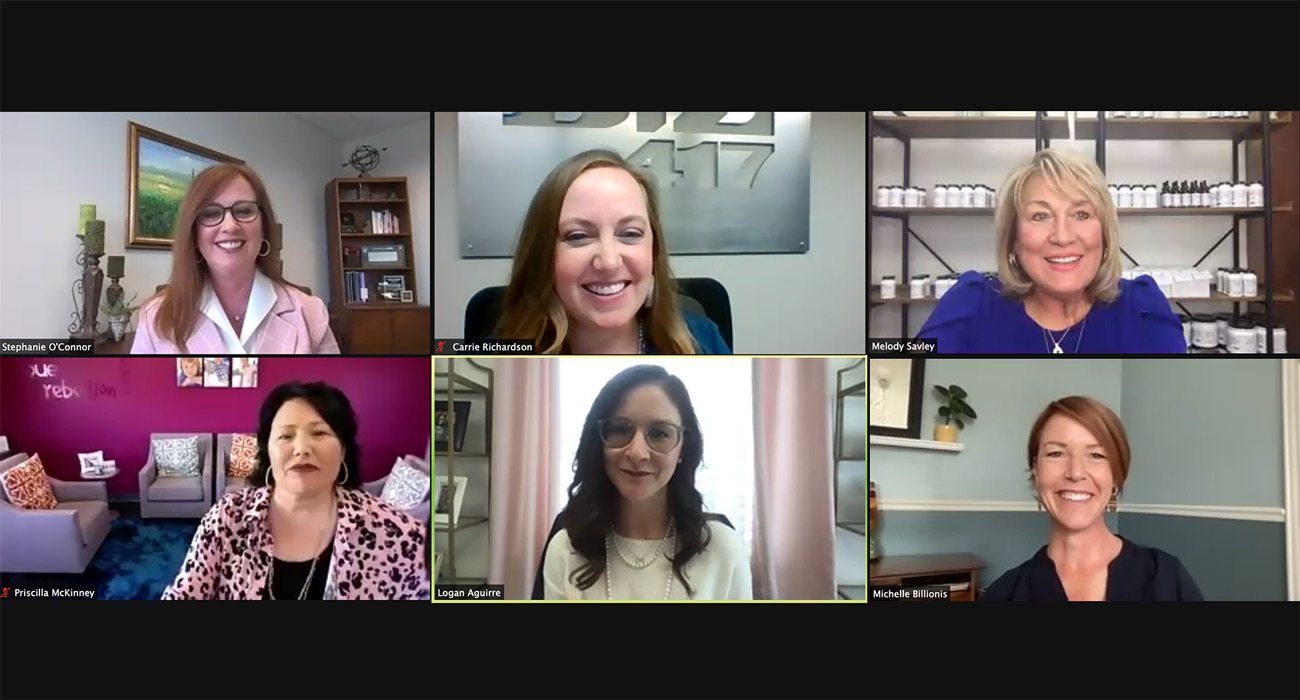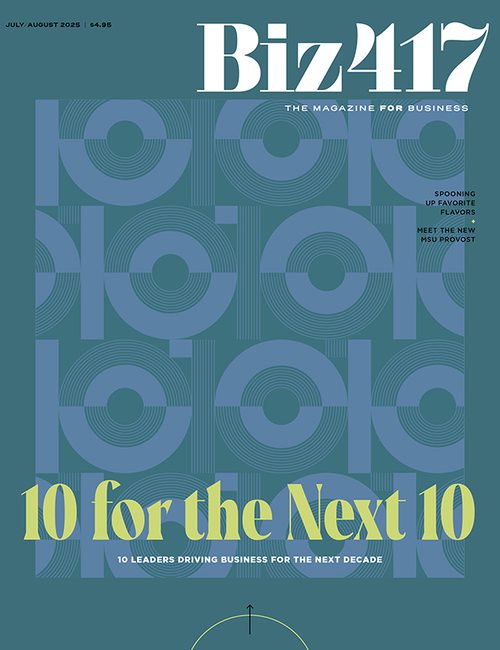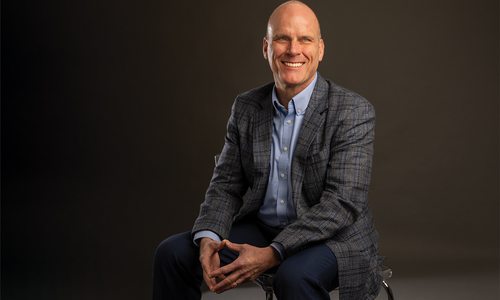
Leadership
10 Things You Missed at Women Who Mean Business Live
This afternoon, five powerhouse women gathered for a Women Who Mean Business Live discussion about how they live out and inspire female leadership in our community.
by Katie Pollock Estes
Apr 08 2021 at 2 p.m.

Get inspired by leading local businesswomen who shared their words of wisdom at Biz 417's Women Who Mean Business Live presented by American National. All five of this year’s Women Who Mean Business honorees were in attendance: Michelle Billionis, owner and co-owner of Coffee Ethic and Cherry Picker Package x Fare; Priscilla McKinney, CEO and Momma Bird of Little Bird Marketing; Stephanie O’Connor, vice president – chief information and people officer at City Utilities; Carrie Richardson, executive director of Leadership Springfield; and Melody Savley, co-owner and chief pharmacy officer of Alps Pharmacy. For the sixth year, Biz 417 has chosen a small and elite group of women for our annual Women Who Mean Business feature. From among about 100 nominees, these women were chosen by our editorial team with input from our editorial advisory board for their business chops, inspiring personalities and career highlights.
With a mixture of business savvy, wit, humor and vulnerability, these five women taught us a lot in just one hour. Here are 10 of our favorite takeaways. Want to have a little bit of fun? Take our “Which Woman Who Means Business Are You?” quiz to see which of these wisdom-slinging bosses is most like you.
1. On Trusting Your Intuition
When asked about a lesson that she learned early on that she still holds close, Billionis said it was to trust her intuition, to really listen to it, and to go in that direction. And while trusting her intuition, she also had to learn that she didn’t have the answers to everything and wasn’t an expert on every single facet of her business right out of the gate. “You can tackle those things as you go,” she says.
2. On the Importance of People
“I’m such a task-oriented person, and sometimes that lends itself to forgetting that it’s people who matter most,” Richardson says. “Stopping, slowing down and building relationships is by far the most important part of business.” Her solution? In part, it’s to be present. If she can be fully present in what she’s doing and who she is with—whether that’s at work or at home—she’s a better person at the end of the day.
3. On Excelling in a Male-Dominated Industry
When Savley entered the pharmacy industry more than 40 years ago, the stereotypical image of a pharmacist was an old man in a white coat. How did she find her way and move forward? “I treated people with respect and hoped they’d treat me with respect in turn,” she says. That has meant staying up to date on industry advancements, speaking her mind when she has had innovative ideas and in turn gaining the trust of patients and customers.
4. On Being Courageous
O’Connor knows what it’s like to work in a male-dominated industry as well—as an IT professional in the utility business, she actually knows this twice over. And she emphasizes that women need to feel empowered to have a voice and enter those workforces. She points out that often women will look at a job description, see one skill on the list that they don’t have, and decide not to apply. “I’d encourage women to look at positions and say, ‘I have the other skills, so I’m going to go for it,’” she says. She encourages women to take the risk and be courageous so you can share your voice and your ideas.
5. On Separating Work from Worth
McKinney has a saying that she coined years ago: “Work your work job, not your worth job.” That means sometimes you have separate your own sense of self-worth from the work that you’re doing. It’s especially true in a creative field. Creativity is subjective, and some people may not like the work that you do. But, she says, that’s their opinion, and it’s okay. It doesn’t reflect your worth. “If they are critiquing your worth, you’re giving them power they shouldn't have,” she says. “When you’re critiqued it has nothing to do with your worth. It’s about your work.”
6. On Working Through Loss
When Billionis’s husband and the co-founder of their businesses, Tom, passed away unexpectedly, she found herself running the business while also experiencing enormous grief. “At the onset, it is really difficult,” she says. “Everything is so raw. When it first happens, it’s difficult to put one foot in front of the other.” With grief that is complicated, multi-layered, and never-ending, she had to find a way to move forward while facing the challenges of trying to understand how the business worked and how to make it better. She found her way through thanks to work (the daily focus and distraction) and the people around her, like the staff that was integral in keeping things running smoothly, her friends and family, and the community. “The Springfield community came and knocked on our doors and asked for more coffee, thank God,” she says. More than anything, her daughters motivated her to work every day and move forward. “They needed to see me progress through the grief so that they knew they could,” she says. And as she pushed on, each new accomplishment moved her forward and gave her confidence.
7. On Forming a Supportive Community
At City Utilities, O’Connor has spearheaded a new initiative called SWAG: Strong Women Achieving Goals. It’s meant to energize, empower and enrich women in both their professional and personal lives by bringing women together to learn from one another and lift one another up. Participants learn about achieving work-life balance, becoming unapologetic leaders who aren’t afraid to take a seat at the table, and creating a network of support around them. They do this through small groups that change periodically, allowing the space to share, learn, grow and lift one another up.
8. On Balancing Legacy with Progress
At Leadership Springfield, Richardson was tasked with turning the longstanding and much-beloved local organization into a self-sustaining operation—but she couldn’t think only of the future when she did it. She also had Leadership Springfield’s 2,000 alumni on her mind and the organization’s legacy. “It was the most challenging professional step I’ve ever taken but was equally the most rewarding,” she says. The challenge was trying to understand how to make the best decisions—quickly and with limited information as she was learning everything about the organization and her role. “We talk internally at the board level about how we built the airplane while we were flying it,” she jokes. How’d she do it? She recognized that Leadership Springfield as it existed before she came on board provided a great point to jump off from, and from there she could trust herself and the organization to move in the right direction.
9. On Making Your Voice Heard
Savley points out that no matter what industry you’re in, laws, regulations, statutes and rules are being made with or without your input—and you need to decide if you want to have input on those things in your career. In the pharmacy industry, she has worked hard to speak to legislators at the state and federal level, relaying information about the industry and helping to lobby for legislation. And she’s found that if you put yourself out there, they’ll listen. “Governor Parson came to our pharmacy to see how an independent pharmacy does COVID vaccinations,” she says. “We’ve done more than 3,000 vaccinations. The week after that I met with Josh Hawley with 30 pharmacists, pharmacy owners and students about concerns that we have seeing independent pharmacies closing around us. We need federal regulations to stop that.” She encourages others in the industry to join local, state and national associations to get involved and help drive change.
10. On Being Vulnerable
When asked when she sleeps (given how busy she is with her business, her podcast and a global client base), McKinney was honest: “It’s not working for me right now. I’m not sleeping.” She says this from a place of honesty and vulnerability. As a business owner, she has a lot of weight on her shoulders—including concern for her employees’ financial safety and the toll COVID-19 has taken on everyone, including herself. She acknowledges that just because you’ve been able to dig in and take on a 60-hour or more week in the past, that might not be the right thing to do right now. “We have to take care of ourselves,” she says. “It’s non-negotiable.” She adds that you have to stop and recognize your limitations; there can be a price to success. Sometimes you have to put in the long hours, but “right around the corner, we need to take a deep breath and take care of ourselves.”












